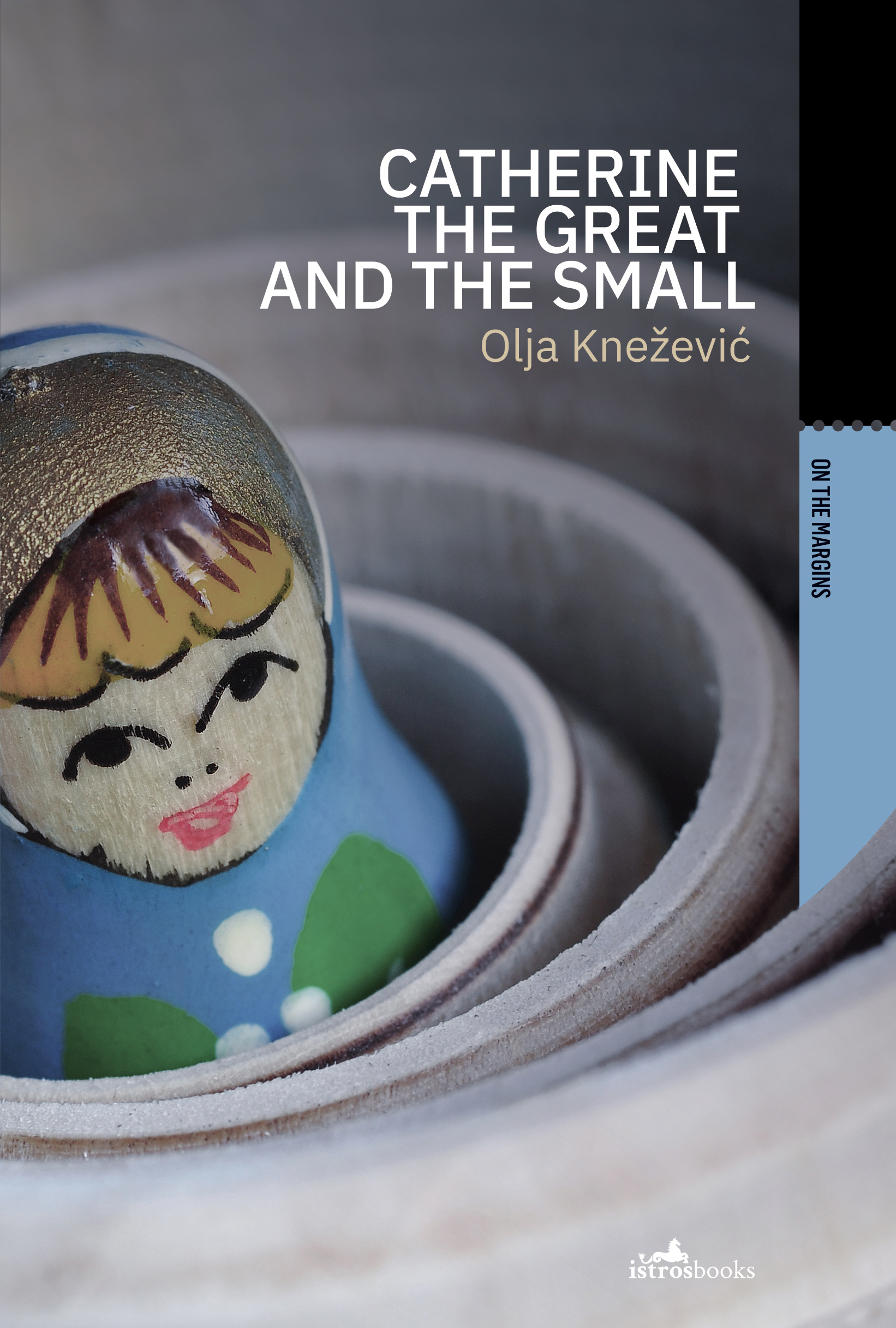I’m excited today to bring you the first in a 3-part series of interviews about a new Montegrin book and its journey to publication. Olja Knežević’s Catherine the Great and the Small is a tale of four Montenegrin women navigating relationships with themselves, each other, their country and some pretty disappointing men as the Balkan wars escalate. Published next week by Istros books in a co-translation by Paula Gordon and Ellen Elias-Bursać, you can pre-order it here.
This week I’m talking to Susan Curtis, director of Istros Books, about her mission and her decision to publish Catherine the Great and the Small.

Istros Books focuses on bringing into English books from a particular geographical area, but beyond that, what are your priorities in the books you commission?
Susan Curtis: I have tried to keep the number of male and female writers on our list equal and I have almost succeeded in that aim because there is only a slight male bias, which really reflects the trend in the region (though UK publishing is not immune to this either!) It seems to me that especially in terms of prizes for writing in Bosnian/Croatian/Serbian/Montenegrin, female writers are hardly ever awarded the big national awards – Meša Selimović is a particular example. I remember when Daša Drndić was nominated for the Independent Foreign Fiction Prize and we were joking that she couldn’t win because the prize always went to men. I even bought her a false moustache to wear! A few years later her novel was shortlisted for the EBRD Literature Prize and it was again given to a male author. Daša died shortly afterwards, and since her death her reputation has grown enormously, but she never won any great literary prizes in her lifetime, either here in the UK or in her home country (Yugoslavia, then Croatia). Croatia is a prime example of a country that extols a number of male writers while neglecting its very best, in my opinion, the female authors Olja Savečević, Slavenka Drakulić, as well as Dubravka Ugrešić and Drndić. Thankfully, I have the ability to bring their works to new audiences.
How did you come across Olja Knežević’s work, and Catherine the Great and the Small in particular?
This novel is part of a cooperation between Istros Books and the Croatian publisher VBZ. For three years we received EU funding to translate the winning manuscript from VBZ’s annual ‘best unpublished novel’ award. Last year Olja was the winner, and that’s how Catherine the Great and the Small came to Istros. It was perfect because I have published two previous writers from Montenegro (Andrej Nikolaidis and Ognjen Spahić) and I really wanted to publish a female Montenegrin author.
What drew you to Catherine the Great and the Small, and why do you think it is important to make it accessible to English-language readers?
Catherine the Great and Small is set in Montenegro, as it once was in the Federal Republic, and as it is now, as an independent state. Throughout the novel we not only see the main character grow and change, but we also watch the environment change, witness the rise of free enterprise, the corruption and crazy politics. The energy and bravery of the narrative voice is very addictive and inspiring – and it sheds light on a part of the world that many English-language readers are still unfamiliar with.
Did the book come with translators already assigned, or did you seek them out to commission them?
The Croatian publisher VBZ organised the translation and gave me the opportunity to work with two new translators. I have known Ellen Elias-Bursać for a while, whereas Paula Gordon was a new discovery for me. It’s always an enriching experience to work with different translators and see how they each approach their art in unique and impressive ways.
Part of your mission is to bring into English “books from unfamiliar places”, and Montenegrin literature is certainly scarce in English translation. What do you think Catherine the Great and the Small brings to the Istros catalogue, and could it open up possibilities for more Montegrin literature – particularly by women writers – to make its way into English?
Montenegro is one of Europe’s smaller countries but it does a lot to promote its culture. I have twice been invited to the Podgorica Book fair and love the city and the laid back energy of the people. Women from that part of the world are so often Valkyries and we should know more about their stories and their bravery.
On your website, you state your belief that “good literature can transcend national interests and speak to us with the common voice of human experience.” One thing that struck me in Catherine the Great and the Small was the powerlessness of many of the women, and the ways in which they either overcome or succumb to this. Do you think this is culturally and contextually specific to the text or more universal?
To follow on from my previous answer, despite their intrinsic value and strength of character, so many women from the South East Europe region are marginalised or hidden behind bullish men. The female domain has traditionally been the private one, not the public, so they are only just discovering that they can have a foothold there, too. Did you know that the only poetry allowed to women for hundreds of years were the songs of mourning that they were expected to wail at funerals? I bought a collection of these ‘tużbalice’ last time I was there… I hope to translate a few one day!
Coming next week:
“My writing has not been an escape into pretend-worlds – it’s been the best tool to reach my consciousness when it seemed like everything else had conspired to make me forget myself.”
Interview with Olja Knežević, author of Catherine the Great and the Small.
Pre-order Catherine the Great and the Small here.
